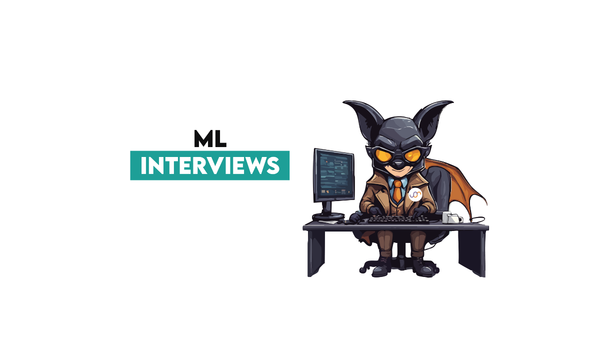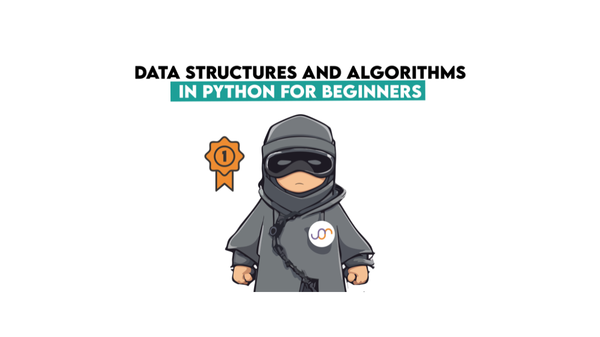Remote Data Science Job Roles to Pursue Right Now
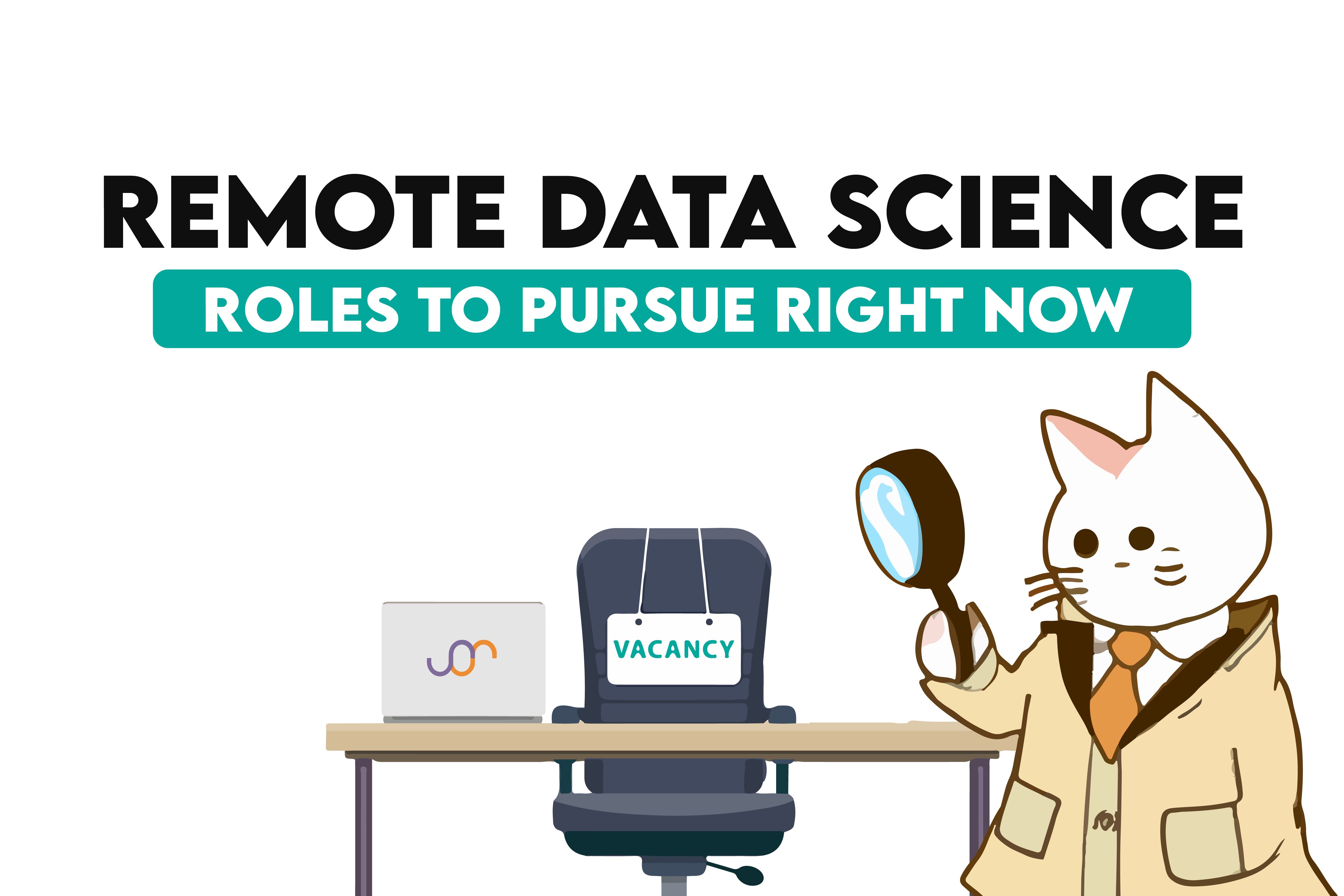
Categories
Let’s discover remote data science jobs and roles you should go for. I’ll add some advice on how to succeed, and off you go to the world of remote work.
Let’s discover remote data science jobs and roles you should go for. I’ll add some advice on how to succeed, and off you go to the world of remote work.
Data science is ideal for remote work. What do you need? A computer, electricity, internet, access to some data, and a way to communicate with other team members. A bit simplified look, but only a little.
It’s no surprise there’s a rise in the popularity of remote data science jobs. Many factors contributed to that, and we’ll have a look at some of them.
If remote work makes you happy as a clam, you’ll be glad that we’ll also look at remote job opportunities currently open in data science.
The Rise of Remote Work in Data Science
Most people think of COVID-19 as the main reason for the rise of remote work. But it goes deeper than that.
In general, remote work is a natural outcome of several factors. It all started around the 2010s or a couple of years before that. Apple launched iPhone in 2007, basically invented a smartphone, and put a power of a computer into a pocket-size brick.

Fast internet and Wi-Fi connections started to become ubiquitous around that time, and we started living non-stop online lives.

The amount of data shared and used by businesses dramatically increased. With that, we have increased the need for data storage. Unsurprisingly, cloud technologies, such as Microsoft Azure, IBM SmartCloud, and Oracle Cloud, were launched at the beginning of the 2010s. Now we have an almost limitless amount of data stored in the cloud, easily accessible from anywhere.
The massive amount of data and the increase in the possibilities of what can be done with it spurred the need for the experts handling it – data scientists.

At the same time, online freelance platforms, such as Upwork, Fiverr, Freelancer.com, and Toptal, were launched. They recognized what we’re all aware of now – technology allows communication, collaboration, holding meetings, and accessing data from any place on Earth. From your room. From your desk or your couch.

These developments significantly impacted how we see work and the relationship between employees and employers even before COVID-19.
The 2021 Future Workforce Report 2021: How Remote Work is Changing Businesses Forever study by Upwork cites that, pre-pandemic, around 19.4 million people were working remotely in the US. That was already more than 12% of the 158.6 million strong US workforce in 2019. Even then, I remember some projections claiming that more than 50% of the world's workforce will work remotely in the next seven years.
Then the pandemic hit! Suddenly, the companies that claimed it’s impossible to do their ‘oh so important and sensitive’ work outside their premises had all their employees sitting at home with their laptops (how getting a company laptop suddenly became easy!) packed with strange,newly-allowed apps, in their pajamas and slippers, doing the same job as before. The employers moved to remote work because they had to. Unfortunately for them, the employees liked it and the freedom it brought.

Who wouldn’t like it, with the ever-increasing commute, public transportation, and gas prices, rents forcing people to move to cheaper parts of the country? On top of that, people realized the talk of the ‘office culture’ is the kinda bullshitty concept invented mainly to keep people in line. They happily replaced it with all the Zooms, Slacks, Microsoft Teams, and Google Meets.

Do you want to guess when these tools were introduced? Yes, all four in the 2010s, all well before the pandemic.
Now, many workers are clinging to their newly-won freedom and are refusing to go to the office. Remote work is here to stay. The companies are accepting that, especially as they see benefits like increased productivity and saving costs. The same Upwork report cited above claims 36.2 million Americans will work remotely in the next five years, which is more than 86% increase compared to pre-COVID.
This is a ‘short history of remote work by me’, that serves to paint a picture. As you can see, the pandemic wasn’t the sole reason for the move toward remote work, but it dramatically accelerated the transition. Another report by Upwork shows that: only 2.3% of businesses had fully and 20% had partially-remote teams before the pandemic; post-pandemic, this jumped to 13% for fully and up to 74% for the partially-remote teams.
Add to that the rise of data science in the last years and its suitability for remote work, and the very high demand for remote data science work doesn’t come as a surprise. That’s despite this year’s significant tech layoffs.
An attractive job paired with an attractive way of working offers many possibilities. We’ll look at the job market and dig out some cool job opportunities for the most popular remote data science jobs.
In-Demand Remote Data Science Job Roles
Let’s see what data science job roles offer the most opportunities for remote work. Even though I’ll shortly describe each role, please go to the data science roles article for in-depth coverage.
Remote Data Scientist
Data scientists’ main task is to build machine learning models which use algorithms to predict and interpret future behavior. Their skills can be used in many fields, such as healthcare, marketing, e-commerce, product development, finance, etc.
In the last month, only in the US, there’s been 919 job ads on Glassdoor for data scientists of various seniorities.
For example, you can work for the Florida Blue health insurer for up to $140k p.a.
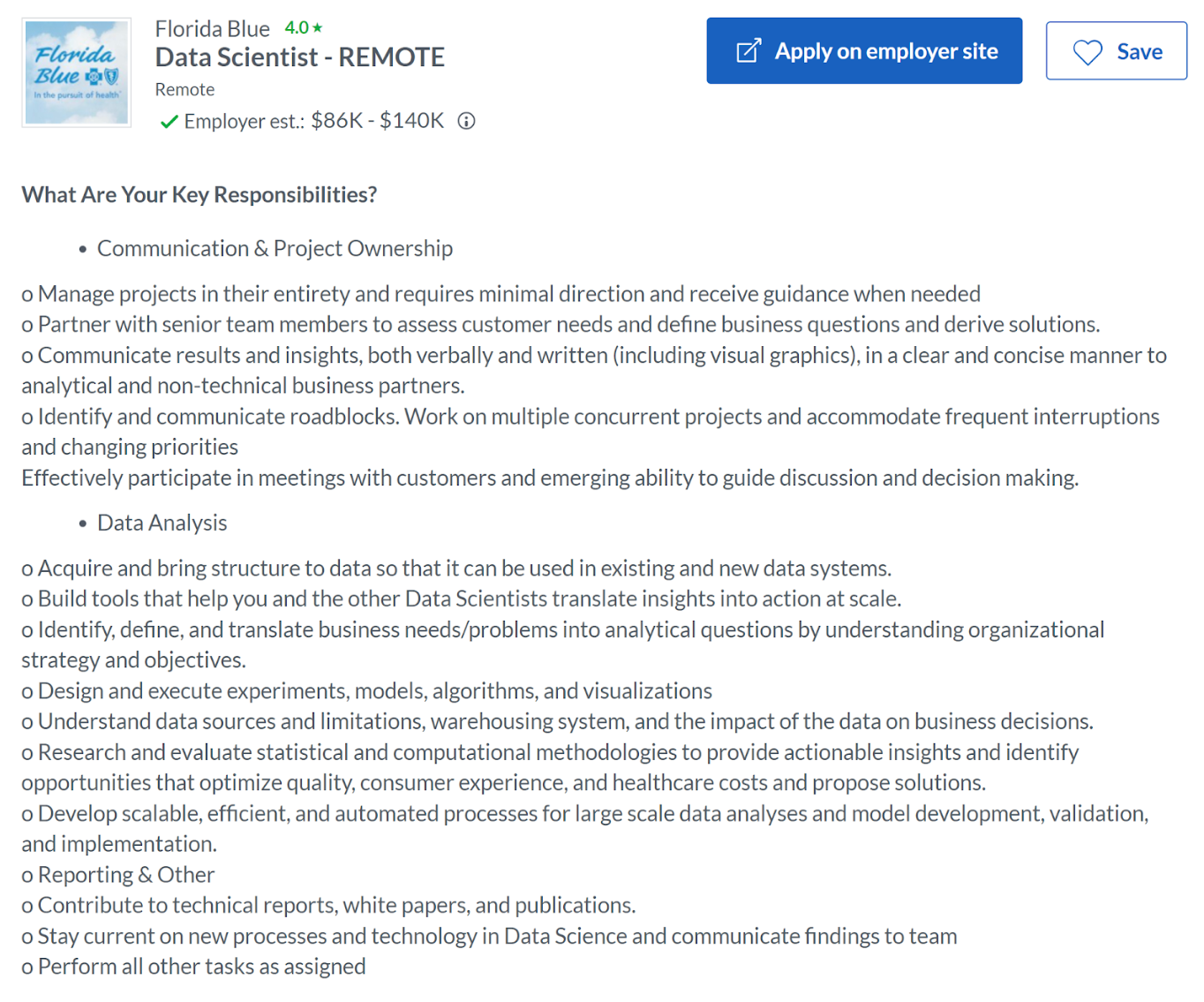
Pharmaceutical & Biotechnology and Healthcare are among the top three most-popular industries for data scientists. Most of the jobs are, of course, in the tech industry. They include a Senior Data Scientist at Lumen,

and a Data Science Manager at Meta.
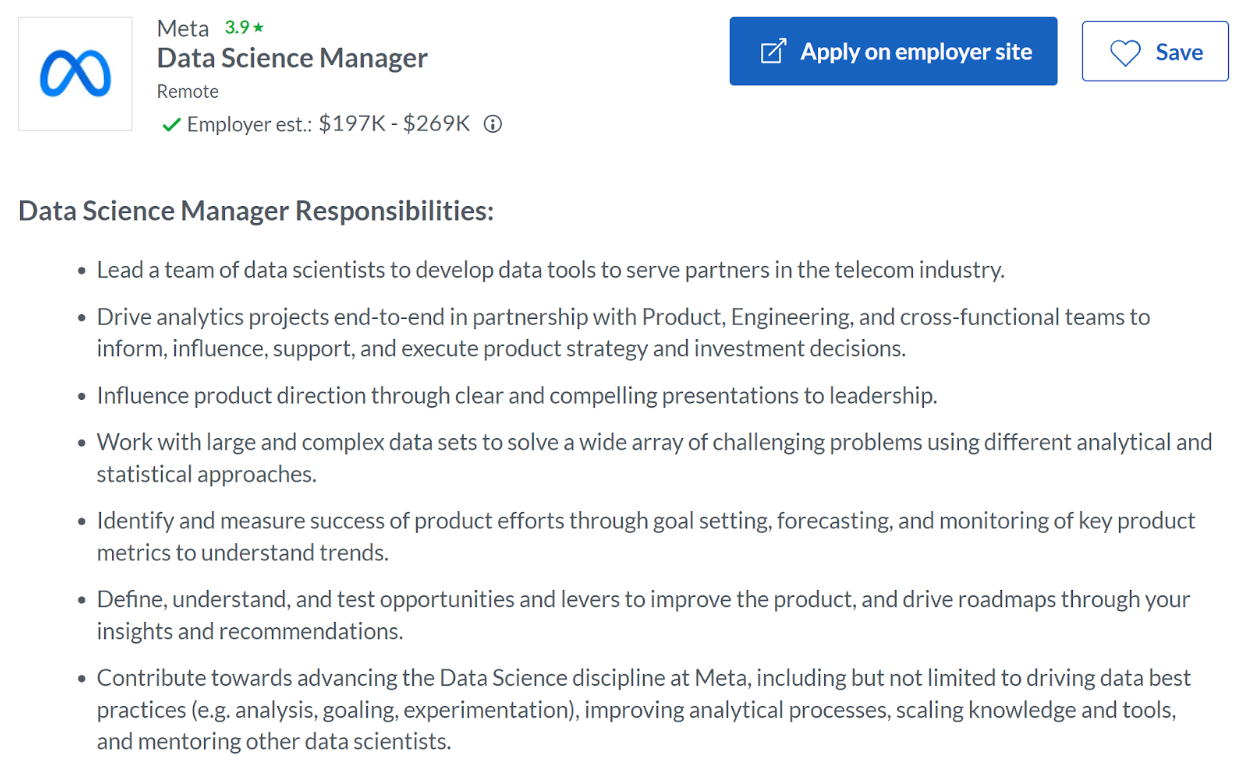
Remote Data Analyst
Data analysts gather, clean, and analyze data. Through their analysis, they unearth the insights and present them in the form of reports and data visualizations.
Glassdoor search shows 1,297 remote data analyst jobs posted in the last month in the US. Again, tech is the most popular industry. Healthcare, Insurance, and Management & Consulting are the other three most popular industries.
For example, CrowdStrike offers a senior data analyst job for up to $150k.

In healthcare, you can work as a Senior Data Analyst at Presbyterian Healthcare Services.
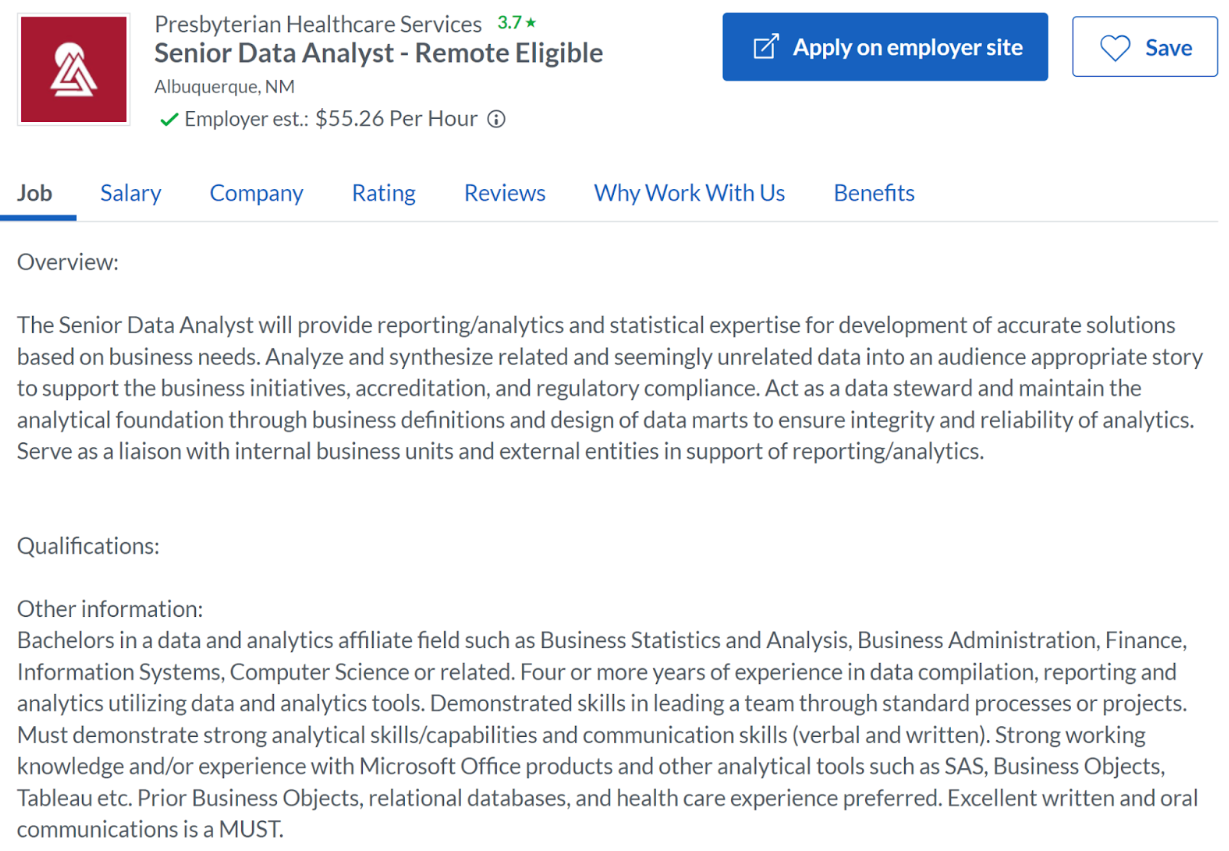
If you’re interested in working in Insurance, there’s an opportunity at Molina Healthcare, Inc.
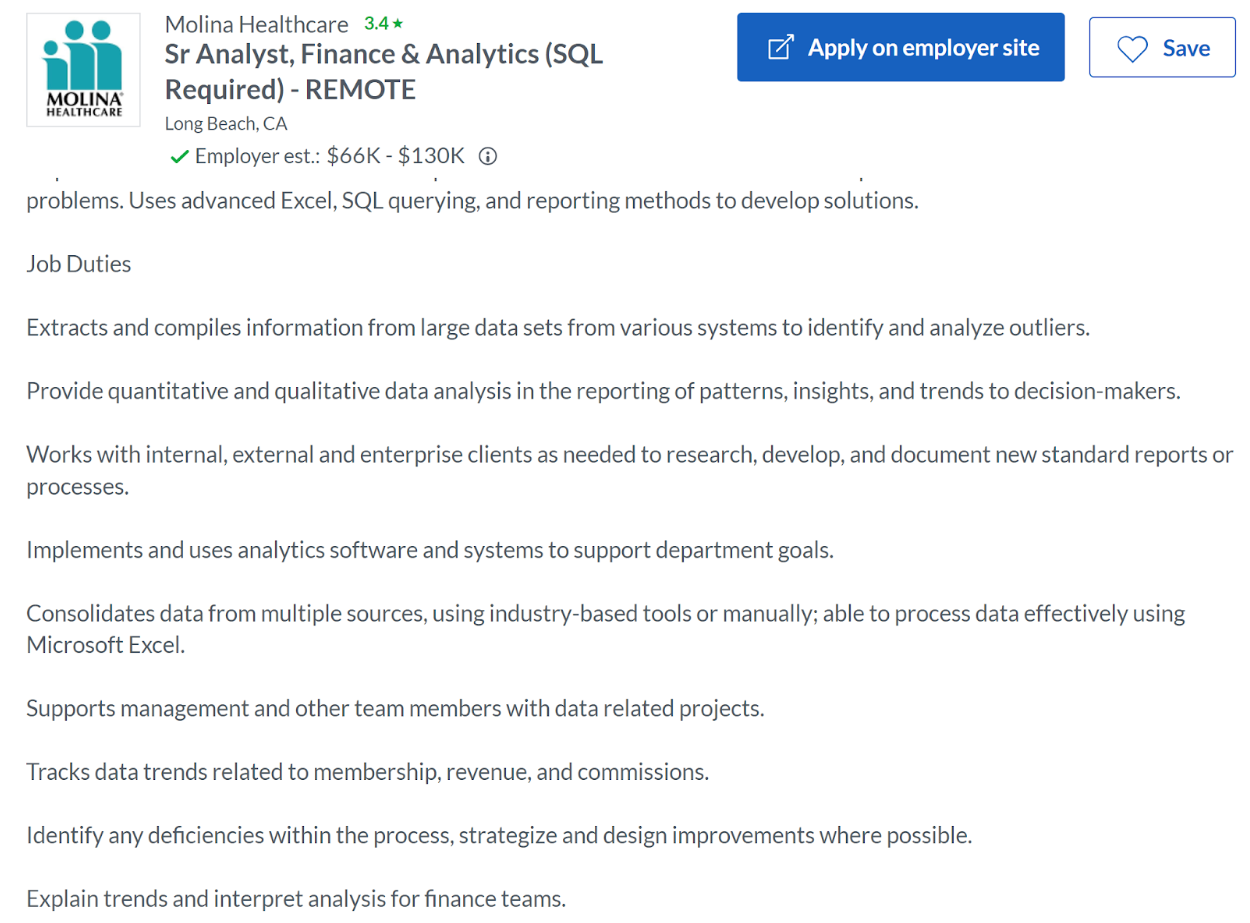
We already talked about remote data analyst jobs. Even though the jobs mentioned in that article are now all probably expired, you can use it to see which companies hire for remote work and what are pros and cons for data analysts.
Remote Machine Learning Engineer
The machine learning engineers gather and organize data, which they use for building, deploying, and maintaining machine learning models – models that make predictions and decisions on their own. More specifically, these engineers gather and organize data, which they then use to train and maintain machine learning models and software.
There is a significant overlap between the roles of machine learning engineers and data scientists. That’s why many machine learning engineer jobs are disguised under the data scientist title. However, a search on Glassdoor offers some job ads that explicitly look for remote machine learning engineers.
By far, the most popular industries are IT and Financial Services. For example, you can work at DNV for up to $155k,
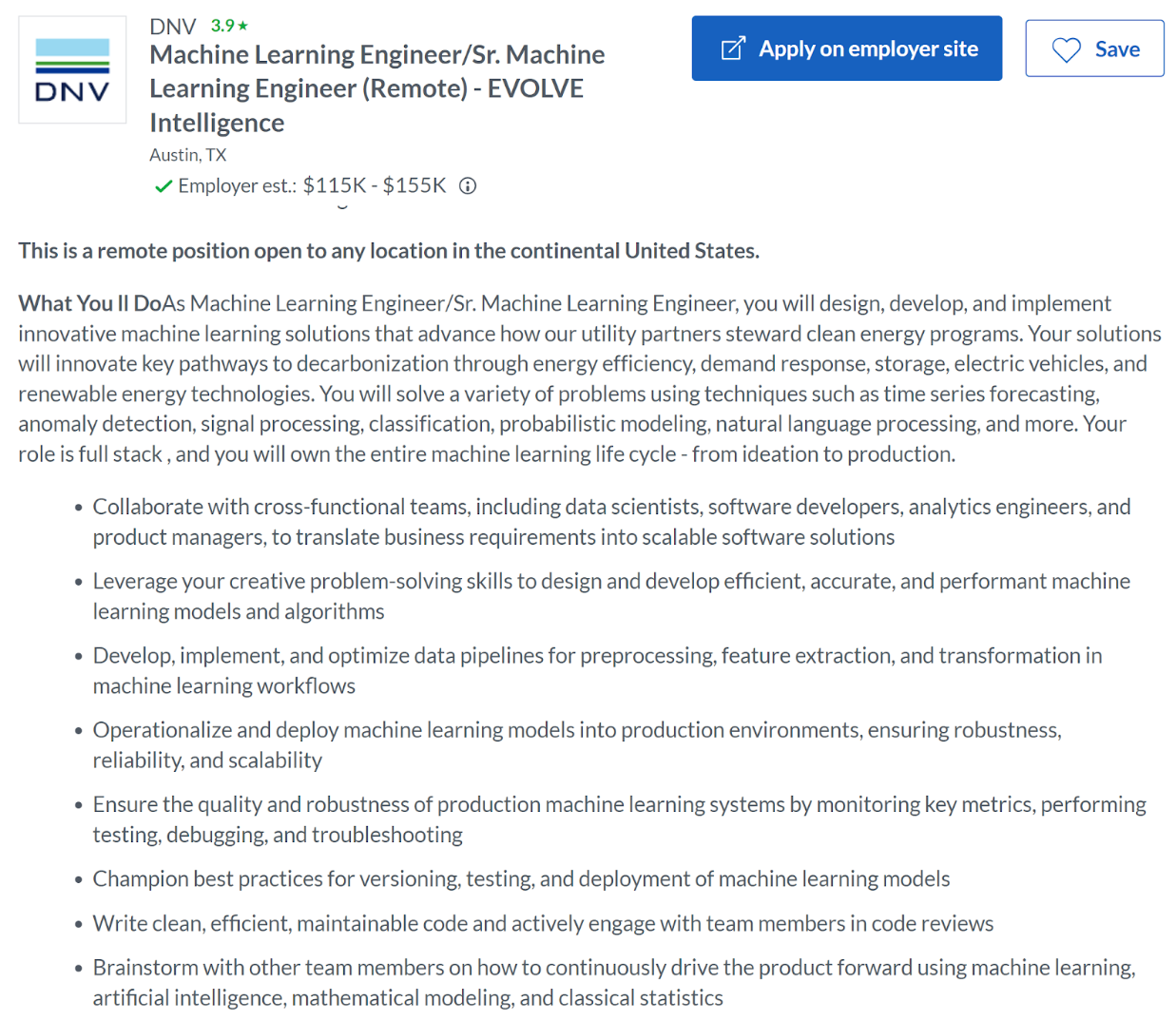
as Staff Machine Learning Engineer (VoiceAI) at ServiceTitan for up to $216k,
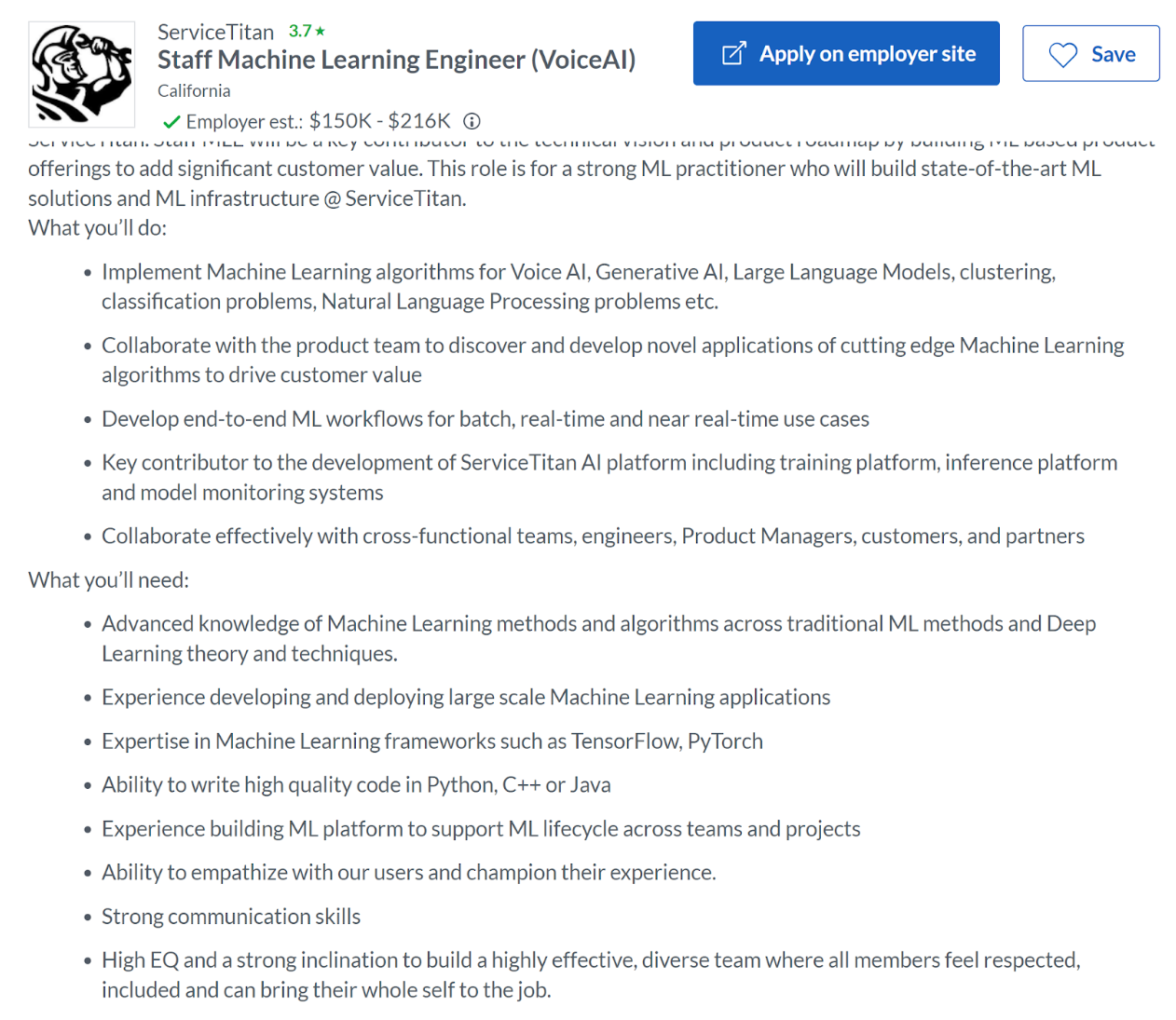
or a Senior Machine Learning Engineer at Remitly for up to $173k.

Remote Data EngineerGlassdoor
Data Engineers focus on developing and maintaining data infrastructure. The development here means both the design and construction of the data processing systems. Data engineers are not only concerned with the infrastructure but also actually getting the data to other users. Hence extraction, transformation, and loading of the data (ETL) as one of the primary data engineers’ tasks.
With 698 ads last month, remote data engineers are also in high demand, mainly in Financial Services and IT.
Principal Financial Group offers up to $182k to an experienced data engineer.

At EY, you can work as an Azure Data Engineer Support for up to $128k.
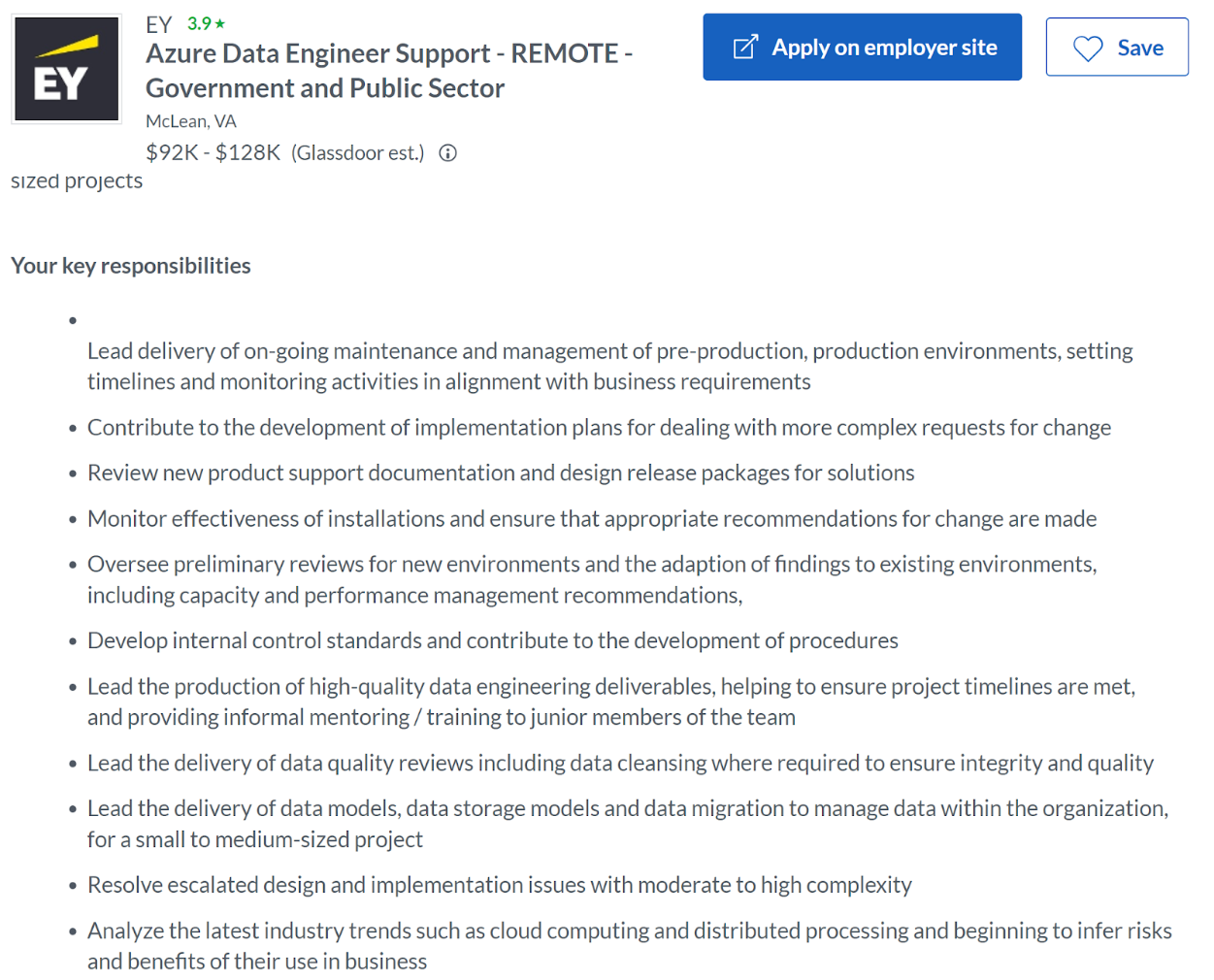
EPAM Systems are looking for a Senior Big Data Engineer to work remotely for up to $150k.
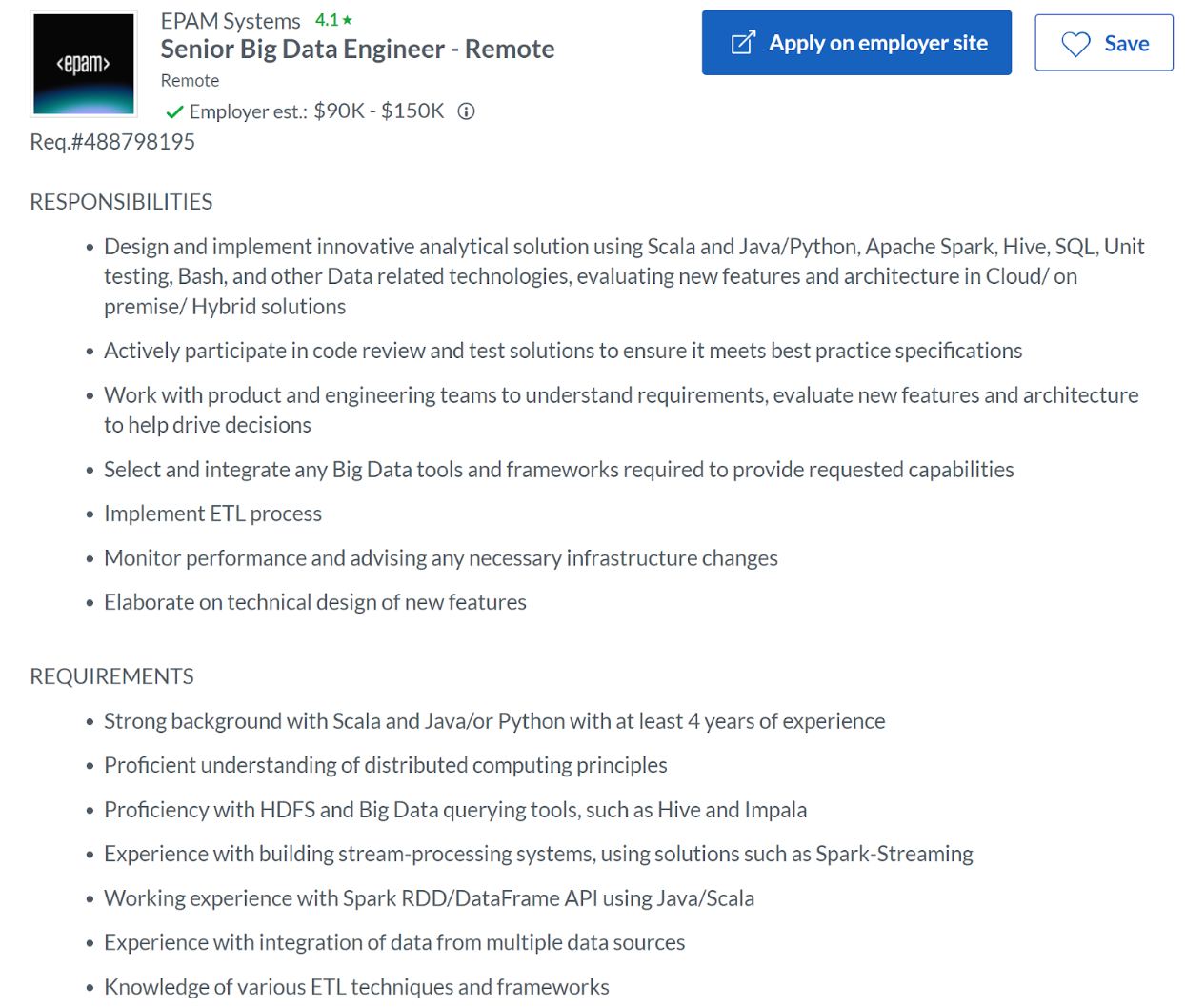
Remote Data Visualization Specialist
Data Visualization Specialists' main job is to – it’s pretty apparent – visualize data. This sounds an awful lot like data analysts. Yes, there’s a significant job overlap between these two jobs, as they both create reports and visualize data. But data visualization specialist is more focused on visually presenting the data analysts' findings than doing the data analysis itself.
Almost 300 jobs posted on Glassdoor in the last month show remote data visualization specialists are among the highly demanded data science jobs. Most jobs are in IT, Education, and Government & Public Administration.
DevCare Solutions is seeking a remote data visualization specialist for $40-$45/hour.
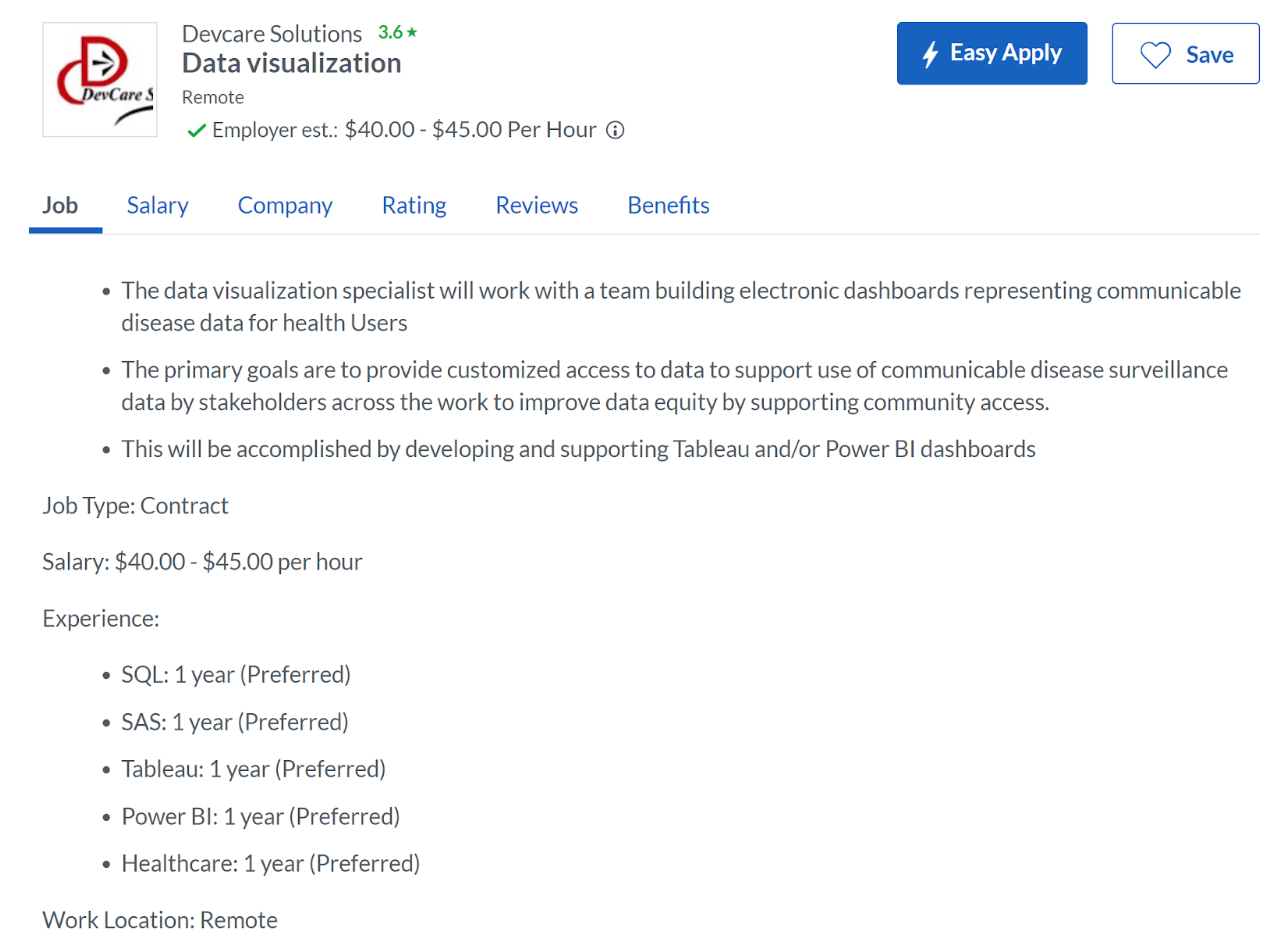
Another exciting job is at the University of California San Francisco for up to $121k per year if you want to work in education.

PremiumIQ offers a job for $75k.
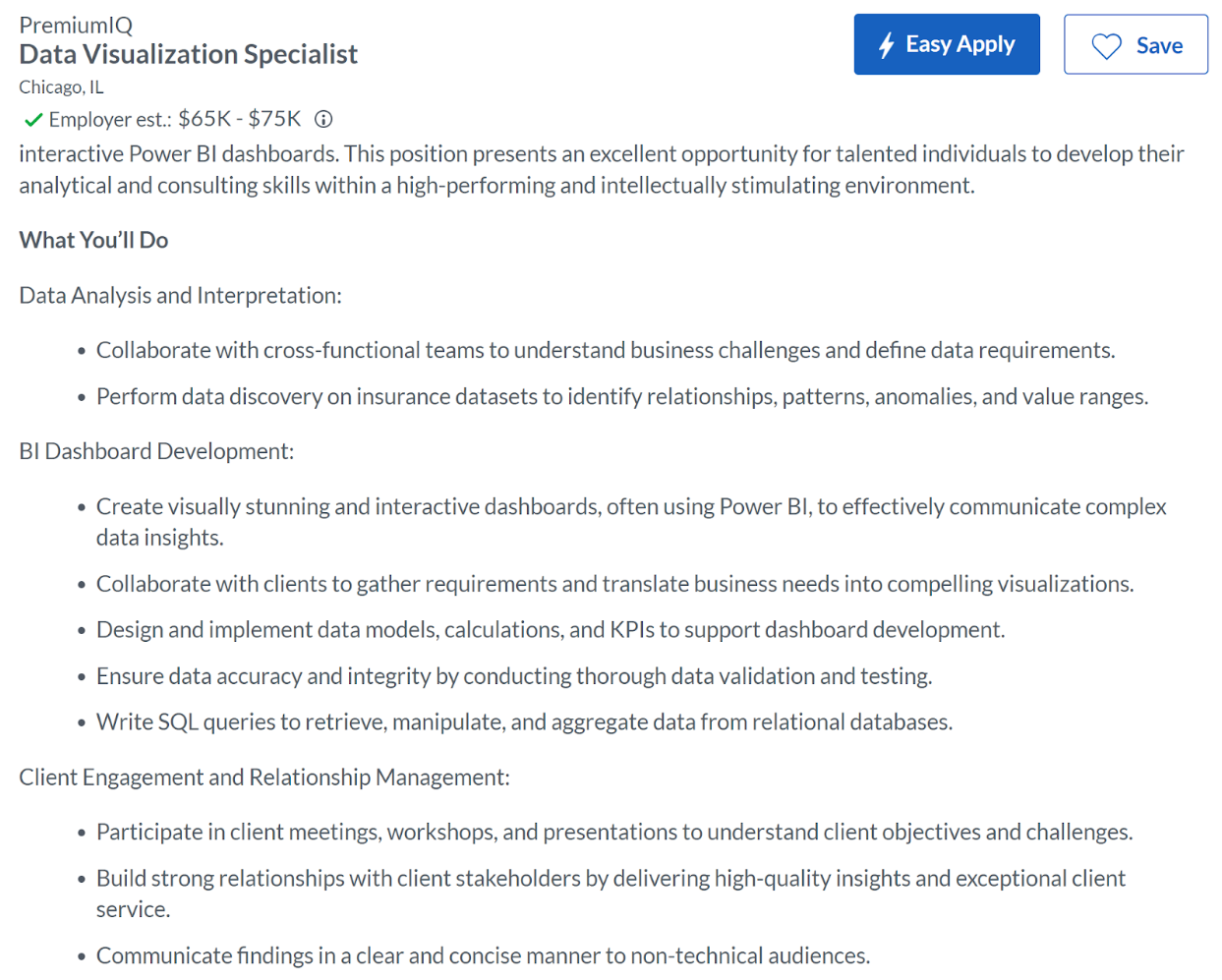
Remote AI Researcher
AI Researchers focus more on AI's research and theory aspects than practice. They do research to find new AI methods, and they work on technological innovation and build prototypes. That way, they can improve existing AI algorithms or create entirely new ones.
This is a little rare species compared to other data science jobs. However, there are still some job offerings with the title ‘AI Researcher’. For example, an AI/ML Researcher position at Watchful.
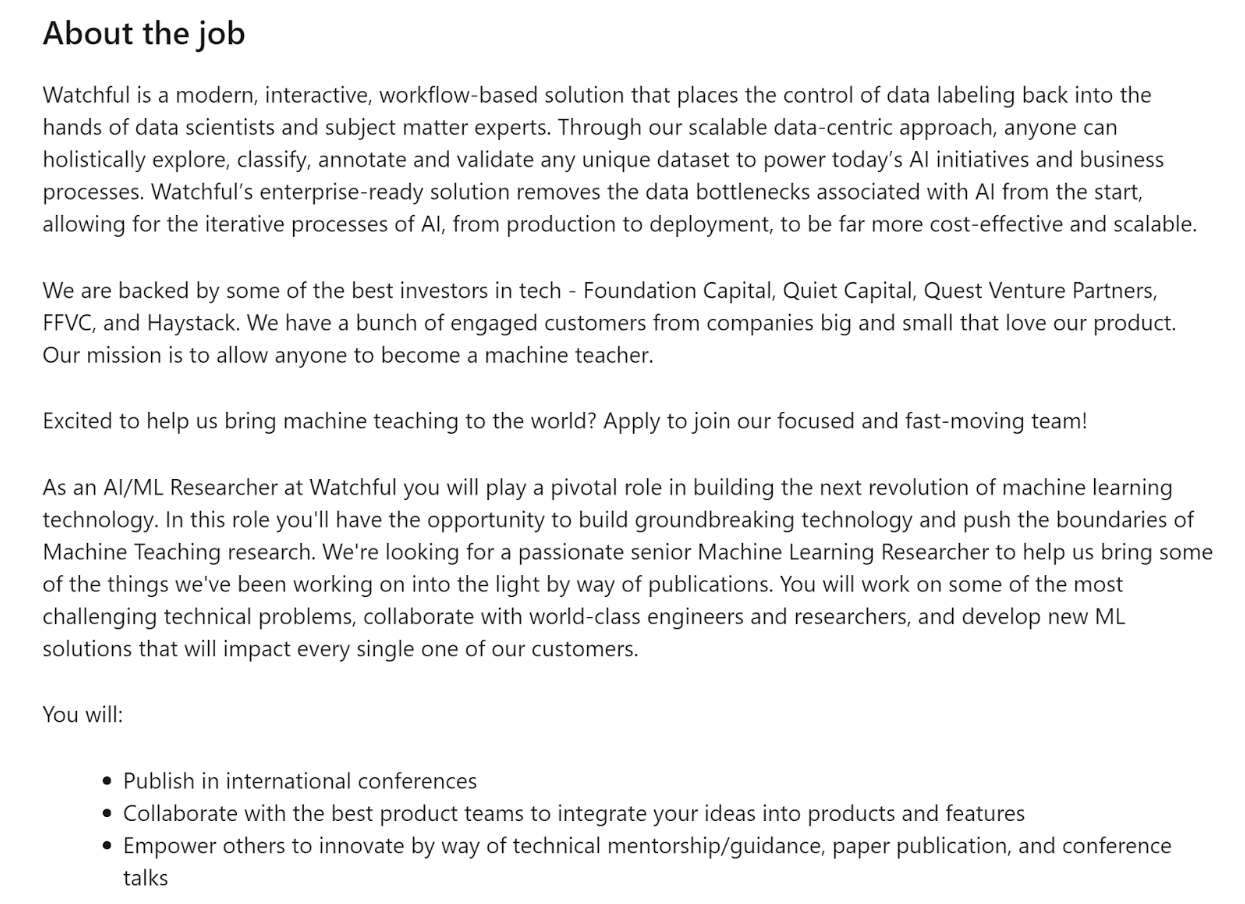
Remote Data Product Manager
Product managers, in general, are in charge of product development. They are in charge of the product strategy, which involves – but is not limited to – identifying the target customers, product features, its release, pricing, placement, etc. Data product managers do the same thing, only for the data-focused products – software, app, or platform, you name it. They are a bridge between the technical and business aspects of a product.
Data products usually come from IT, so it’s not surprising most job ads (out of 129 in the last month) are from that sector.
For instance, this one by CrowdStrike.
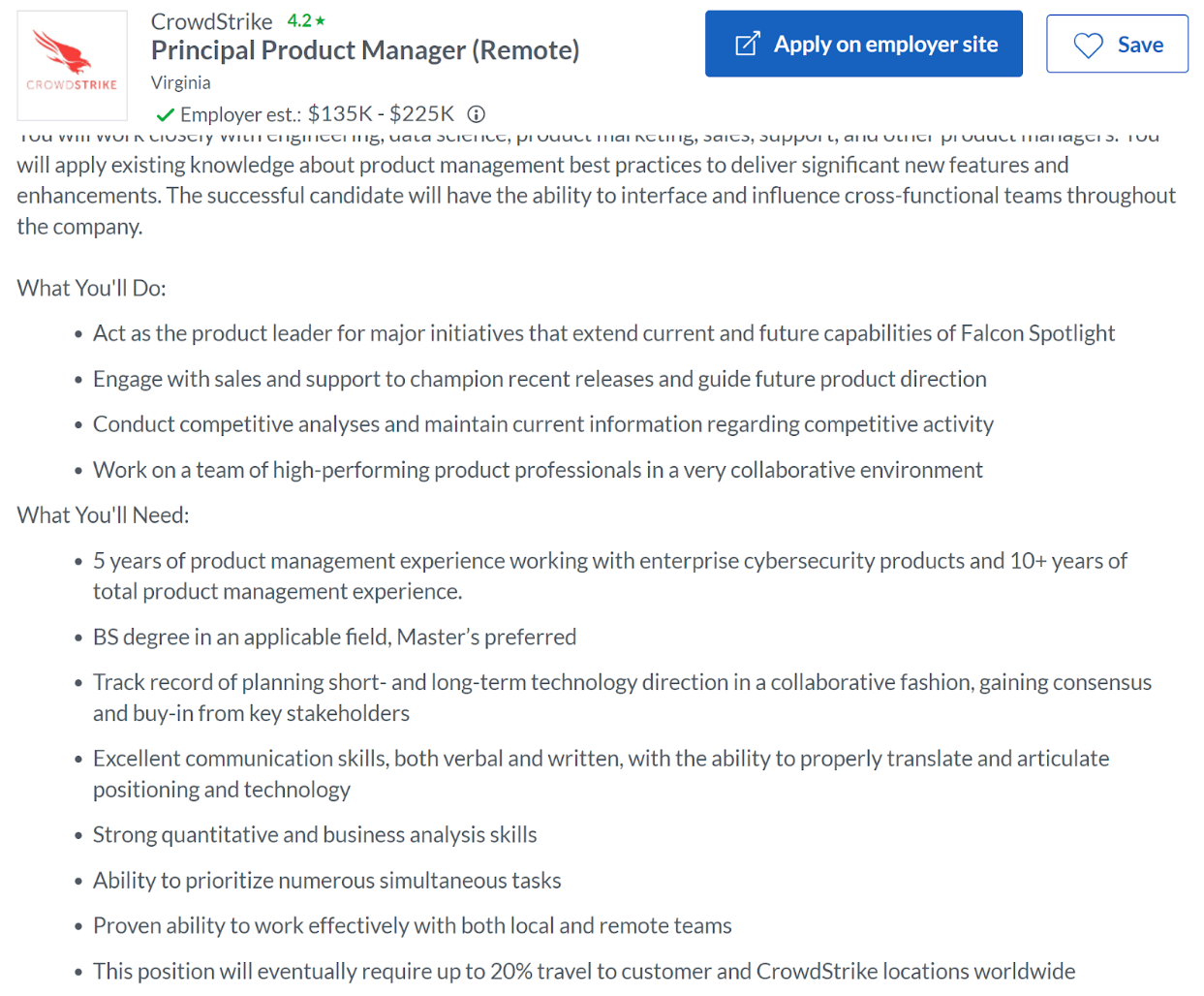
Salesforce is looking for a senior data product manager, and they pay up to $237k.
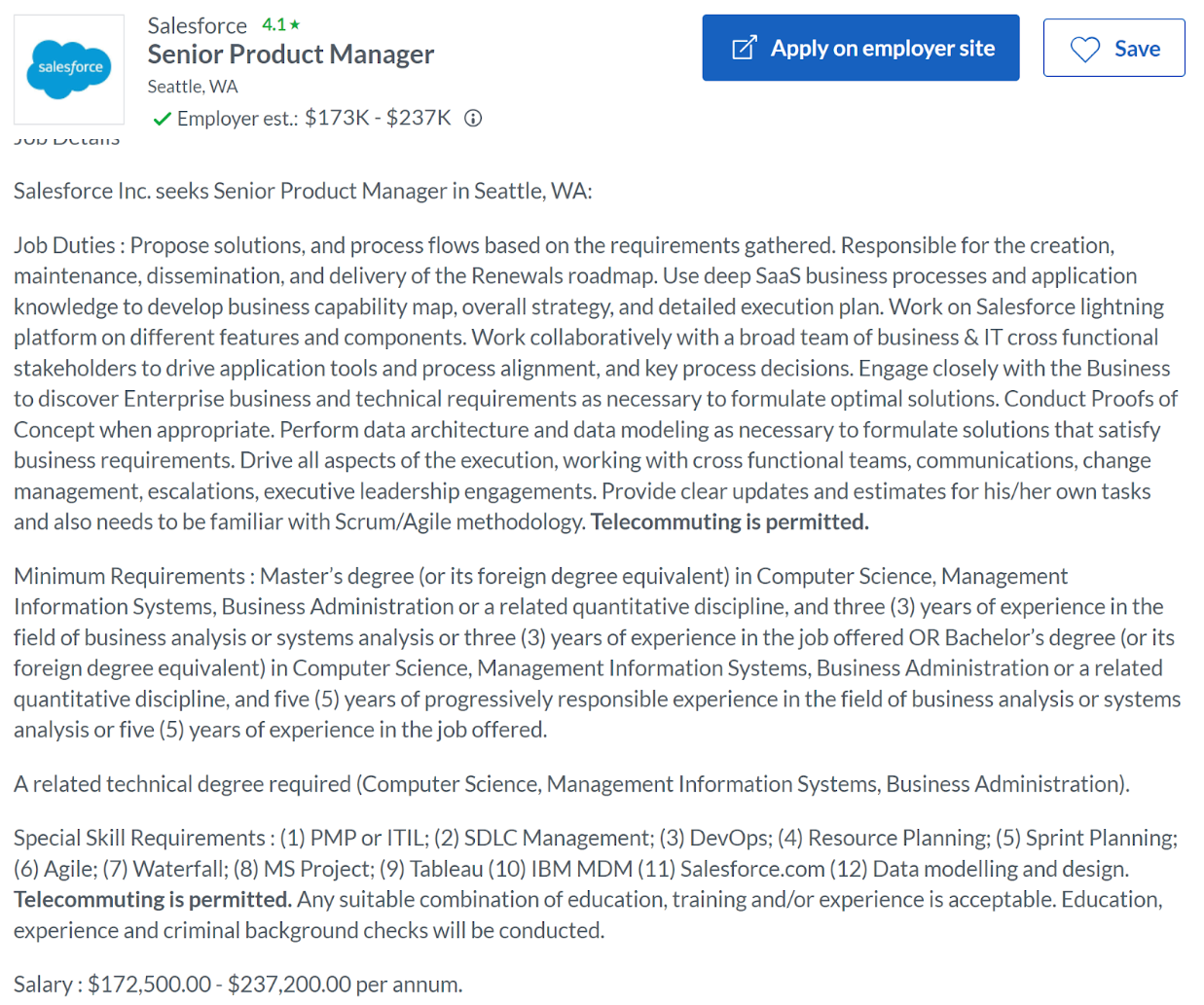
Yelp, too, offers an attractive job as a Group Product Manager.

Remote Data Consultant
A Data Consultant assesses the data management in the company and its business needs, creates reports on findings, and recommends the future development of data management within the company. This can involve anything, from recommending databases, ETL, and BI tools and participating in implementing them, to training and giving more conceptual guidance on the approaches and methods of data gathering, storing, and usage.
There are some attractive job ads for remote data consultants. For example, there’s a job for up to $83k at Aktion Associates.
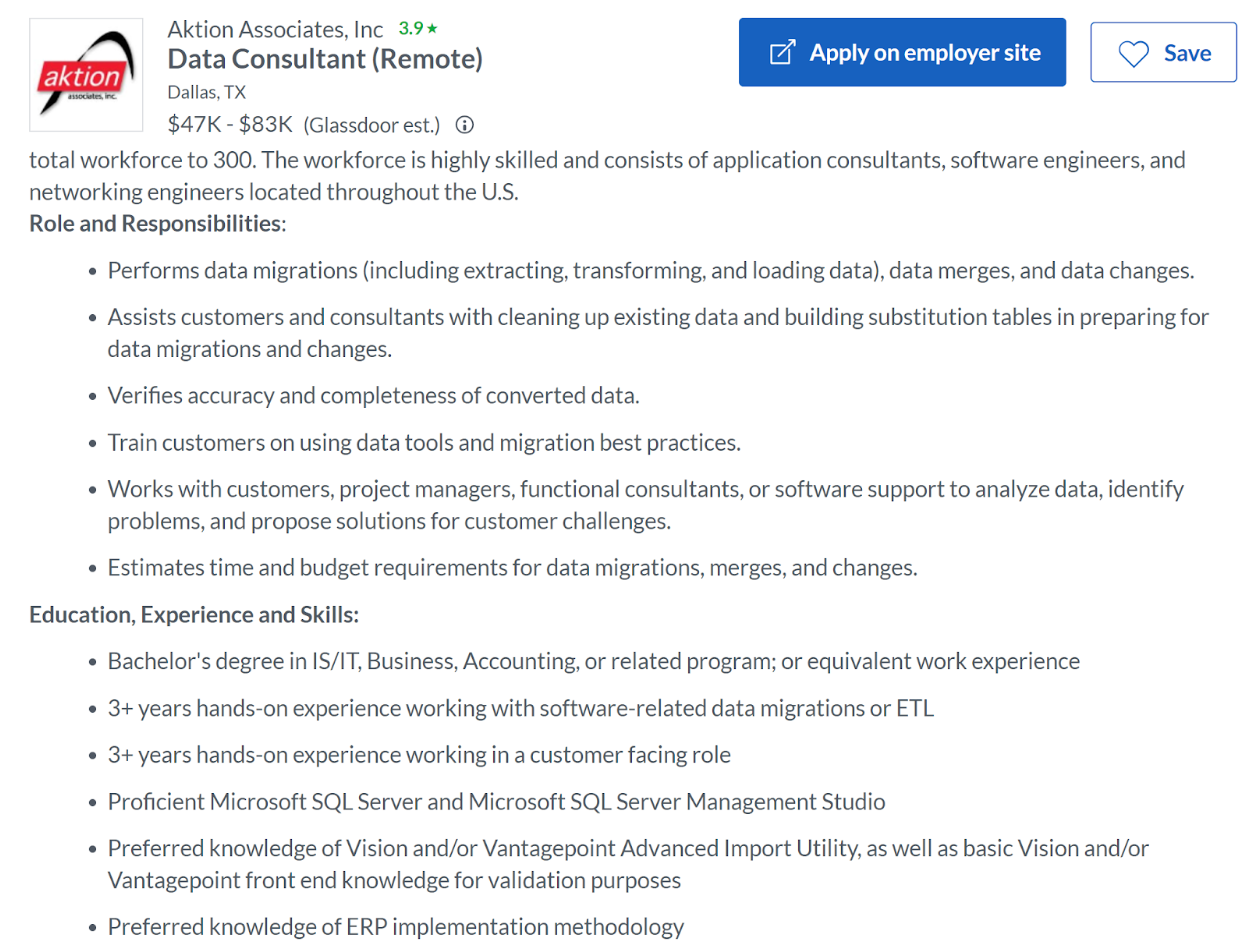
Deloitte offers remote work and a salary of up to $146k for a Select Program Senior Consultant job.
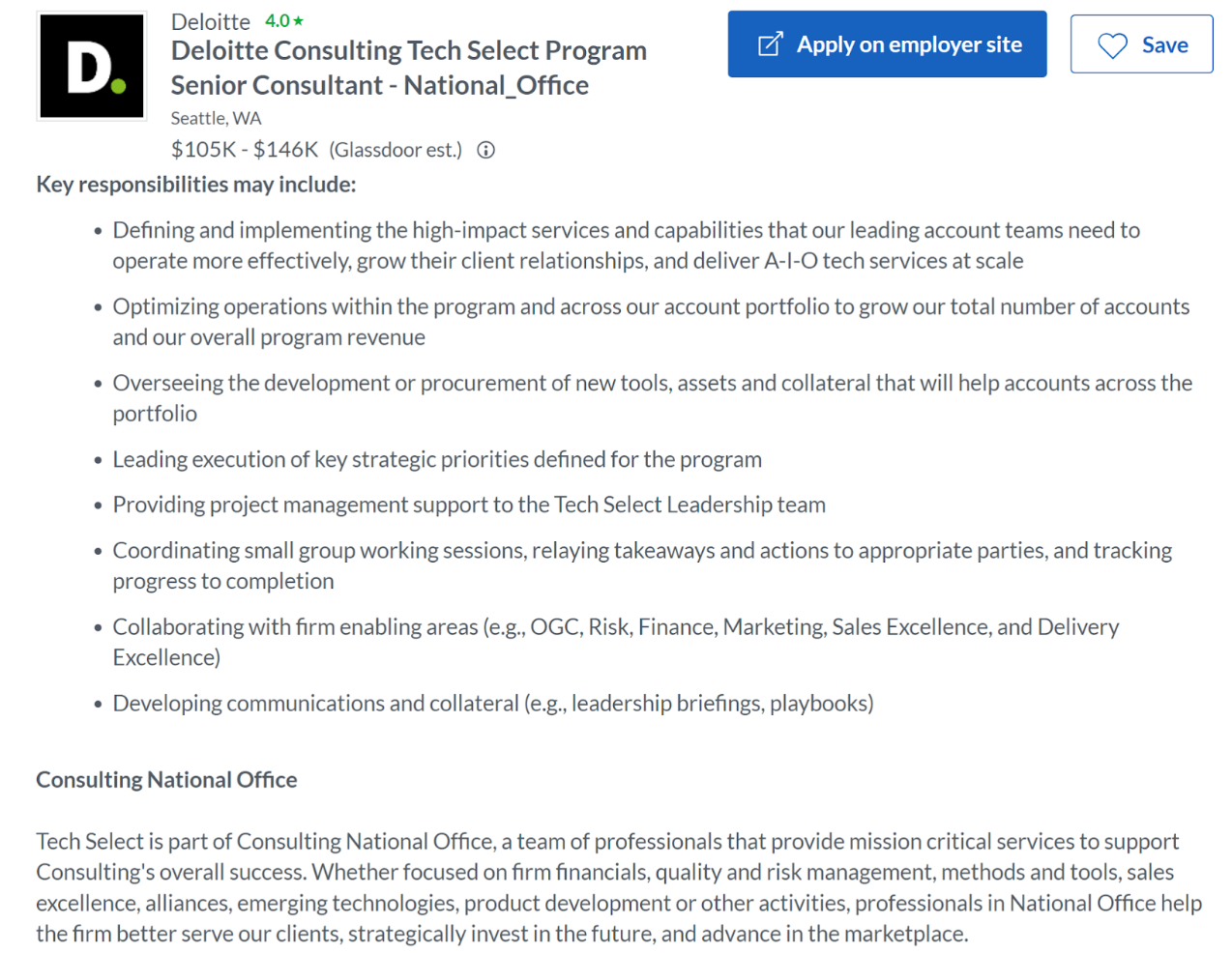
There’s also a job by get.it where you could earn up to $162k.

Remote Data Science Tools and Technologies
The remote data science tools are not much different from those used in ‘regular’ data science. The only significant change here is talking to your colleagues in the corridor, or a meeting room is being replaced with collaboration tools.
Here’s an overview of the skills and tools commonly used in data science.
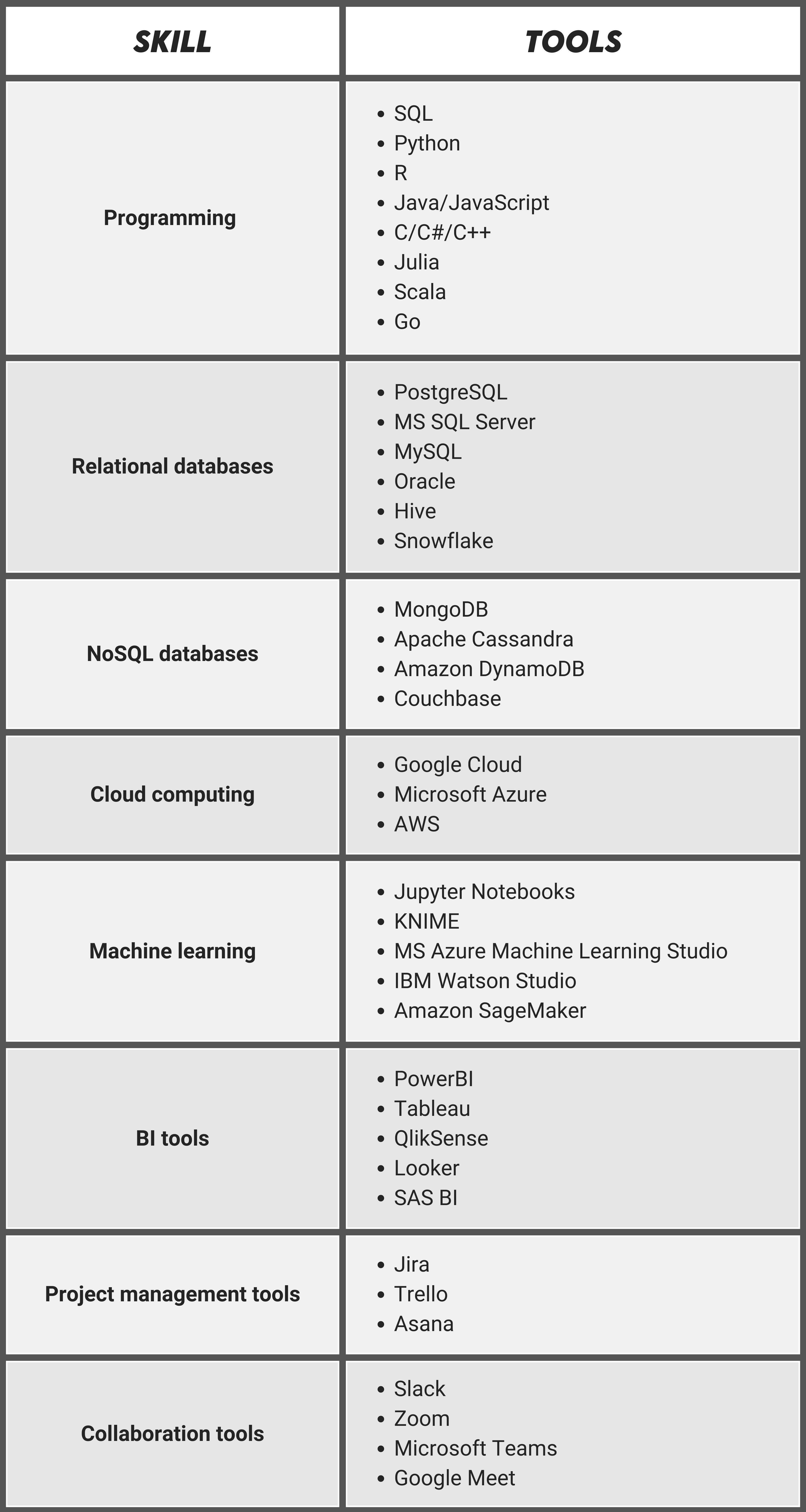
Best Practices for Succeeding in Remote Data Science Job Roles
In remote data science, as well as on-site, strong technical skills are the basis for succeeding in the job. However, that’s never enough, so here are some best practices for succeeding in remote data science job roles.
Never stop learning: Combined with strong technical skills, the willingness to learn continuously will light up any employer’s eyes. I don’t have to tell you that data science is a fast-moving field. This asks you to be open to learning new technologies, better learning ‘old’ technologies, and broadening your theoretical knowledge of statistics, machine learning, algorithms, or any other data science area.
You can learn on a job (the best way!). You can ask the employer to send you to education. You can learn on your own using platforms such as Coursera, Udemy, edX, Kaggle, or many other sources in the form of online courses, blog posts, video tutorials, etc. The important thing is you’re aware your learning only starts after you land a job.
Manage time well: This is important in every data science job role, but especially in remote work. You’ll generally have more freedom in organizing your work in remote roles. That’s what you asked for, now deal with it! And here lies the danger of overworking yourself as you get extra hours (e.g., from not commuting) or not getting anything done as your day structure falls apart.
You should have a daily working routine. This should help you avoid unnecessary distractions. This is needed – despite remote work, you’ll still have some deadlines and, probably, times when you have to be available. Your routine should involve regular breaks and other ‘necessary’ distractions, such as going for a walk, going to the gym, or making yourself a nice lunch.
Communicate well: Again, this is always important, but ever so more in remote data science job roles. The communication tools are there to help you, but messaging over Slack or organizing a meeting on Zoom requires more effort than just popping at your colleague’s desk and asking something. It’s also possible that you’ll communicate with people in different time zones.
Communication in remote teams requires clear wording to avoid unnecessary back-and-forth messaging. Don’t assume someone’s instant availability at your whim – many urgent tasks wouldn’t have been urgent if they were timely communicated. Also, learning about other people’s routines and when they’re usually online is helpful – it will make communication and work more efficient.
Networking: If you’re working remotely, networking with your colleagues from work is much more difficult. Of course, you can still talk and learn from each other. But this is usually much more constricted to the current tasks. With remote work, you lose the possibility to talk about more general technical stuff and engage in data science debates that are not necessarily directly linked to a current job but can still help you improve and do your job better. You need to compensate by networking with the data science community through social media and forums (e.g., LinkedIn, reddit, GitHub, Stack Overflow) and various virtual events.
Remote Data Science Job Search Tips
This is similar to looking for a regular data science job. Here are some general tips.
Tailor your CV and cover letter: Tailor the CV to the requirements of a job ad – highlight skills and experience the job asks for and remove those irrelevant to the job. Avoid writing generic, one-size-fits-all cover letters if a cover letter is required. Refer to the job description, discuss the relevant skills, and how they will help you fulfill the job. Keep both CV and cover letter one page long.
Build a portfolio: A data scientist without a portfolio is like a broken pen – pointless. Data science projects are perfect for showcasing your data science skills, as they usually require using the whole set of data science skills: from data extraction, cleaning, and saving to data analysis, visualization, model building, and deploying. A strong portfolio will tell more about your skills than praising yourself in a cover letter.
Be visible: Use LinkedIn to connect with recruiters and potential employers. Fill in your profile so employers can find you and offer you job opportunities. If you’re interested in that, leverage freelance platforms such as Upwork, Fiverr, or Toptal.
Prepare well: Your interview preparation should include everything from learning about the company and the job to brushing up your technical skills and preparing for the behavioral interview questions.
Be representable in the online interview: No, I don’t mean wear a suit and a tie. But you can do that, too. By being representable, I mean upgrading your equipment (camera, microphone, and headphones/speakers) if the finance allows that. Also, make sure that you have ready all the tools for online interview and you know how to use them. While this doesn’t necessarily mean you won’t get a job, you’ll make a better impression if you don’t spend five minutes of the interview figuring out how to share a screen or screaming ‘Can you hear me!?’ into a microphone.
Challenges and Considerations of Remote Data Science Work
Remote work is not for everyone, so consider some drawbacks before deciding whether remote data science is for you.
Many people don’t have adequate working space. Meaning their apartment is too small, they don’t have a suitable desk or a chair, and there’s a lack of natural light. These aspects can make remote work very difficult or require significant investment, such as buying adequate furniture, renting a bigger apartment, etc.
Inadequate working conditions can lead to even more distraction if other people are around you during your working hours. Someone clanking with the pots or talking on the phone while you need silence, both of you having a meeting at the same time, or a dog insistently barking in your ear can aggravate you even more.
On the other side, loneliness and isolation are also possible. You just sit at home and work. No more seeing other people on the street, talking with colleagues in the office, having lunch with them, or going for a beer after work. You’ll realize that you suddenly have to make a conscious effort even to leave the house, let alone meet someone. There’s no meeting someone by chance. Everything has to be planned.
This also leads to your life becoming even more sedentary.
Learning can become more challenging, especially for people with less experience. They need more mentoring, and remote work makes that more difficult – they’re more on their own now.
These are the main challenges you should think about before deciding whether remote work is for you.
But, after all, no matter how hard you think, you probably won’t know until you try!
Conclusion
Despite the layoffs in tech, the remote data science job market is still pretty active. It offers plenty of jobs of various seniority and, what’s essential, many different data science roles.
Remote work has many benefits, both for employers and employees. People like it. But it’s not perfect, and some prefer working from an office. If the positives of remote work outweigh the negatives, jump on the bandwagon!
We can make this ride more enjoyable for you! Visit our platform for over 1,000 coding and non-coding real data science interview questions. I mentioned the importance of data projects; we have them, too.
Good luck with pursuing remote data science roles!


